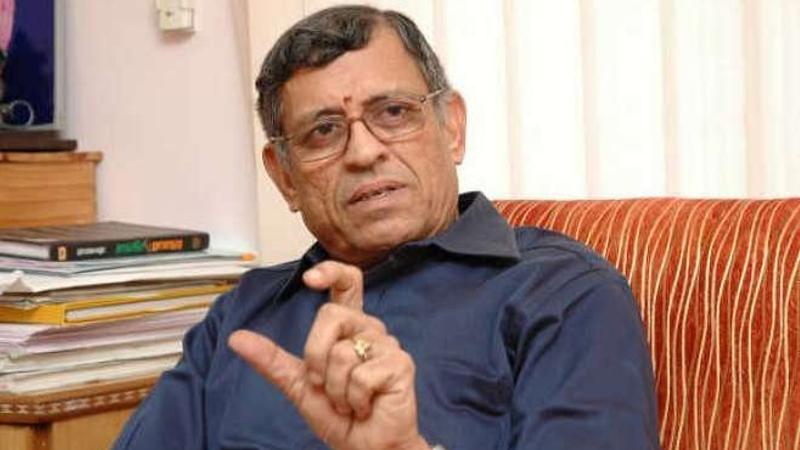Published 14:11 IST, June 25th 2024
Exclusive/ S Gurumurthy's Account of Emergency Reveals Inside Details of India's Darkest Period
49 years later, as India remembers the Emergency era, Thuglak Editor S Gurumurthy revealed the horror that people resisted to overcome the challenges.

New Delhi: 49 years later, as India remembers the Emergency era, Thuglak Editor S Gurumurthy shared his account of the country's darkest period and recalled the courage shown by those who resisted that challenge.
Crusader for press freedom S Gurumurthy called the imposition of Emergency on June 25, 1975, an attempt by the then government to alter the Constitution.
Speaking exclusively to Republic, Gurumurthy said, “Emergency must be remembered every year. People must know how the Constitution was destroyed, SC was made to bend, and the media was made to crawl. We all were eyewitness to it. We all suffered. There must be an Exhibition on Emergency."
Today, June 25, 2024, marks the 49th anniversary of the Emergency, a historic event that pushed the country into the darkest hours of democracy, muzzling free speech, putting the opposition behind bars and imposing a ban on anti-Congress activities.
S Gurumurthy's Account of Emergency
Taking a swipe at the Congress, Gurumurthy claimed that the Emergency was not only imposed to arrest the opposition leaders, but also to change the constitutional character of India.
Following the nationwide state of emergency, she faced massive anti-incumbency sentiment and the Congress lost its first election in 1977.
“It was not only the 1977 elections that helped us overcome the Emergency, but thousands of people worked for it. The main work came from the RSS cadre,” said Gurumurthy. He added that Indira Gandhi didn't even realise the ground slipping from behind.
“Mrs Gandhi was not even aware of what was happening on the ground. She had suppressed the voice of the people by putting opposition leaders behind bars and curbing press freedom.

1975 Emergency: 'Dark Days of Democracy'
“The President has proclaimed Emergency. There is nothing to panic about." The words of then Prime Minister Indira Gandhi echoed across the country in the wee hours of June 26 through the All India Radio. The country, standing at the receiving end, was as surprised as Gandhi's Cabinet ministers who had been informed about it just hours before.
Recalling the period 49 years later, External Affairs Minister, Dr S Jaishankar wrote, “On the anniversary of the declaration of Emergency, recall the dark period for Indian democracy and the courage shown by those who resisted that challenge. The collective response of the nation defined our generation. It will remain a constant reminder of the need to keep working to protect, preserve and fight for our democracy.”
The infamous period of 1975 is often regarded as a dark phase of India's independent history as it was marked by unbridled state incarceration, stifling of dissent, and government crackdown on civil liberties. Human rights violations became a frequent phenomenon and media voices were repressed to a massive extent during the period.
Updated 14:22 IST, June 25th 2024




